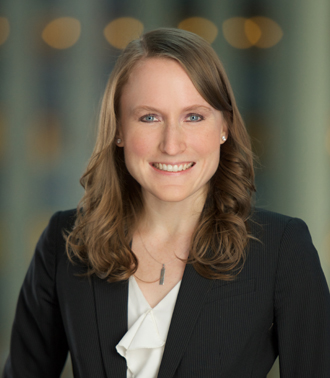Ninth Circuit’s En Banc Decision in Wolfson Validates Kaye Scholer Pro Bono Efforts...
Ninth Circuit’s En Banc Decision in Wolfson Validates Kaye Scholer Pro Bono Efforts to Secure the Rehearing
The Ninth Circuit’s January 27 unanimous en banc decision in Wolfson v. Concannon, upholding three provisions of Arizona’s Code of Judicial Conduct against a First Amendment challenge, was a significant win for Kaye Scholer pro bono clients that had petitioned the court for the en banc hearing.
Wolfson involved three provisions of Arizona’s Code of Judicial Conduct governing judicial elections: (1) a provision prohibiting judges and judicial candidates from personally soliciting campaign contributions; (2) a provision prohibiting judges and judicial candidates from publicly endorsing another candidate for office or making speeches on behalf of a political organization or another candidate for office; and (3) a provision prohibiting judges or judicial candidates from taking part in political campaigns other than his or her own campaign for judicial office.
The issues in Wolfson are important and the decision has broad impact because many states elect state judges and have judicial codes with the same or similar provisions. Within these codes, there is a tension between the First Amendment rights of candidates for judicial office and a state’s interest in promoting the appearance and actuality of an impartial judiciary capable of serving as a neutral forum for resolution of disputes.
The Ninth Circuit initially held in Wolfson that the three provisions in Arizona’s code violated the First Amendment. At that point, Kaye Scholer prepared an amicus curiae brief on behalf of pro bono clients NYU Brennan Center for Justice, Arizona Judges’ Association, American Judicature Society, Justice at Stake and the Campaign Legal Center, supporting Arizona’s petition for rehearing en banc in the Ninth Circuit.
In the meantime, the U.S. Supreme Court granted certiorari in Williams-Yulee v. Florida, which raised the question of whether the prohibition in Florida’s judicial code on judges and judicial candidates personally soliciting campaign contributions violated the First Amendment. The Ninth Circuit stayed its en banc reconsideration in Wolfson pending the Supreme Court’s consideration of Williams-Yulee. Kaye Scholer prepared an amicus curiae brief on behalf of the Brennan Center and a similar group of clients in support of Florida’s position in the U.S. Supreme Court that its prohibition on judges and judicial candidates’ personally soliciting campaign contributions did not violate the First Amendment. In a 5 to 4 decision authored by Chief Justice Roberts, the Court ruled in favor of Florida—that its provision did not violate the First Amendment. Our client called the Court’s decision in April 2015 “one of the biggest victories for protecting judicial integrity.”
In July 2015, after the Supreme Court’s Williams-Yulee decision, the Ninth Circuit entered an order scheduling the en banc oral argument. The argument took place on September 9, 2015. On January 27, 2016, the Ninth Circuit, ruling en banc, unanimously held in Wolfson that the three provisions of Arizona’s Code of Judicial Conduct did not violate the First Amendment, which is the position that our clients supported.
The late Randy Sherman led Kaye Scholer’s pro bono efforts in both Williams-Yulee and Wolfson. Counsel Robert Grass assisted Randy on the amicus briefs in both cases, with associate Stephanna Szotkowski also assisting on the Williams-Yulee brief.
In writing about the Wolfson decision, Matt Menendez of the Brennan Center noted that “it seems a clean sweep for upholding reasonable restrictions on judicial campaign conduct. And another great result for Randy, even now.”


